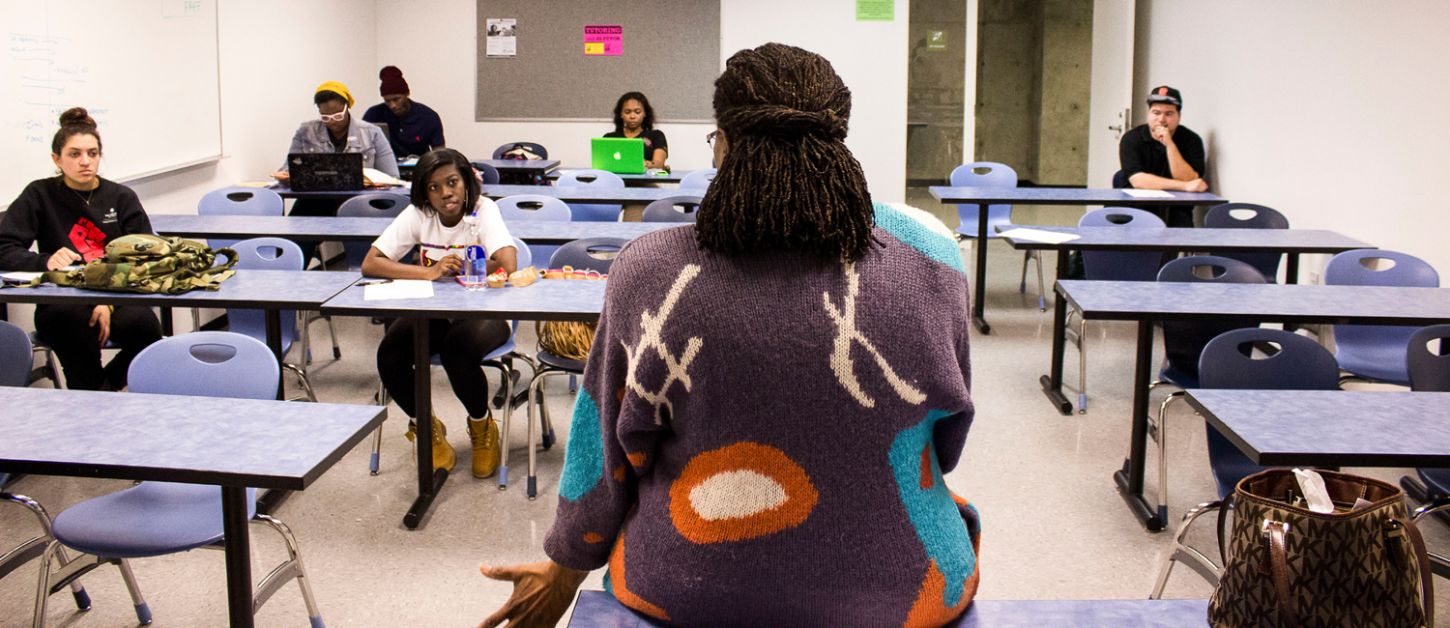Here’s the one thing my parents heard every year at Parent Teacher Conferences: “Your daughter has really good grades, but she doesn’t speak up enough. She has to learn to speak up because it’ll be important for her later in life.” But as much as I wanted to, I was too shy and introverted to speak up, and every time that I did, I would suddenly feel my stomach tightening, my heart racing, my arm shaking as I raised it, and my lips parting without being able to form words in a cohesive, coherent way. My mind always went too fast for my mouth to process. And even after I spoke, it would take me a good 10-15 minutes to calm down again. I just hated everyone’s eyes on me and the silence in the room as everyone listened, tuning in to every nuance of my shaking voice. It was just easier not to say anything! Because I still remember how I felt, I was fascinated by Amanda Wynter’s piece in The Atlantic, “Bringing Twitter to the Classroom .”
Chris Bronke, a high school English teacher in Downers Grove, Illinois, has developed a brilliant way to get his freshmen class to participate in class discussions — by having them on Twitter. While Bronke isn’t the first teacher to use social media to improve classroom learning , he is one of the few making progress in a positive and effective way. By relying on a social media platform the kids were already using, Bronke has encouraged his students to post photos, quotes, quick thoughts, questions about the reading. Hashtags, of course, keep the discussions contained in one thread. Along the way, kids “favorite” each others’ tweets and connect more with each other any time, anywhere, and from any device (mobile, tablet, or desktop). Bronke found that discussions were rich and robust, and that kids were more engaged with the reading and with each other. Although Wynter’s piece didn’t mention whether Bronke noticed more participation from shy and introverted kids online, I can only imagine this has been the case. There’s no doubt technology helps people develop alter egos that allows them to voice things in a way they aren’t able to in person — just check out these New York Times and Washington Post articles on how shy and introverted kids tend to be more engaged and “extroverted” online.
There is something liberating about being able to process and write your thoughts and feelings — without the pressure of eyes and ears — and vet them before sharing them with the world. For shy and introverted kids who struggle with speaking in class and having the spotlight on them, but who need to speak up because their grades depend on it (site note: I always hated this!), participating in online discussions may be a good outlet. These kids are more likely to blossom online and share their ideas and opinions without fearing how they look and sound, and how others are perceiving and reacting to them. Susan Cain, the author of “Quiet: The Power of Introverts in a World That Can’t Stop Talking ” even interviewed a teacher in Canada who noted the benefits social media in classrooms for shy and introverted kids. Of course, using Twitter (or any other social media) to promote discussions certainly has its potential problems — online interaction is still no substitute for real-world conversations , and over-reliance on technology can negatively affect face-to-face social skills (like being unable to identify social cues).
As much as shy and introverted kids may be more vocal online, they also need to develop public speaking skills because “real world” situations beyond school necessitate in-person interactions. I know that if I was given the ability to participate on Twitter during school, I would have loved having another outlet to make my voice heard. But I’m also glad that I didn’t grow up with that technology — I may have relied on it too much and hid behind it. Without it, I had to force myself to feel at ease with talking in front of people — even if it took years, and is still something I’m still working on. Eventually, kids will need to make speeches and presentations, and give and go on interviews, so it’s always easier to sharpen and refine oratory skills (or any type of skills!) from a young age. Of course, it’s possible that being able to “talk” freely and being “favorited” on Twitter will boost kids’ confidence and make them comfortable talking in person. But teachers will need to make sure they strike a balance with having online and roundtable classroom discussions, and they would also need to make sure that online participation doesn’t become a crutch as the only way to earn good grades. After all, developing well-rounded communication skills will help kids throughout life in all situations (with family and friends), beyond the classroom. Ultimately, this would be the true mark of learning — and even success.







